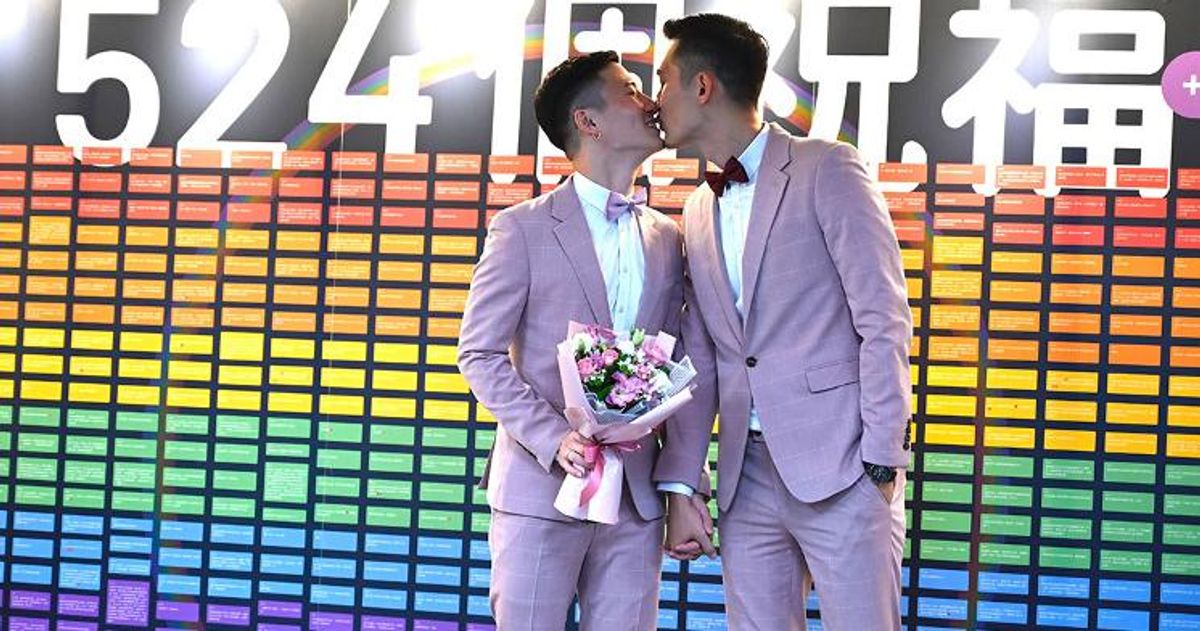As the end of another year approaches, I inevitably look back and reflect on the achievements, stumbling blocks, and key moments from the past year. This year was, at times, frightening, frustrating, and demoralizing. Specifically, the environment for LGBTIQ people became increasingly polarized -- crucial advancement was accompanied by setback, and progressive movements were confronted by sophisticated and organized backlash.
On the backdrop of headlines such as imposition of the death penalty for same sex relations in Brunei, or officials in Uganda threatening to bring back the notorious "kill the gays bill," it can feel hopeless. But there are heroes working tirelessly every day, and gaining remarkable victories in the process.
For the last five years, OutRight Action International, one of the oldest civil society organizations fighting for LGBTIQ equality globally, has hosted its annual conference -- OutSummit. This December, I had the privilege of talking to five LGBTIQ activists and hearing their success stories from the frontlines. And it is reflecting on their achievements and their movements that I choose to focus on, honor, and support as we draw closer to the end of this year and decade.
One such victory was in Botswana, where a colonial-era ban on same-sex relations was struck down this summer. The court verdict itself was hailed across the world. But activist Kat Kai Kolanyane-Kesupile highlighted the many seemingly smaller battles which needed to be won before the landscape became conducive to decriminalization. Decriminalization highlights an important reality: the growing acceptance and understanding that LGBTIQ people have always existed, and will continue to exist, everywhere.
Taiwan became the first country in Asia to pass marriage equality this year. Jennifer Lu, Chief Coordinator of the Marriage Equality Coalition, highlighted the backstory to the remarkable headline. Namely, that understanding the local context is crucial. Hence the marriage equality campaign focused on the concepts of respect and harmony, both fundamental in Taiwanese society. Jennifer also reminded us that marriage is not always the holy grail. Its biggest effect is shifting how LGBTIQ people are seen.
Kenya appeared in the headlines when same-sex relations were not decriminalized by the High Court. And yet, headlines missed the fact that for the first time an African nation incorporated an intersex category into the national census. Yvee Odour, from the Gay and Lesbian Coalition of Kenya, stressed the importance of this seemingly small step: being counted means being recognized. It lays crucial groundwork to be able to advocate for things like inclusive healthcare and an end to intrusive and unnecessary surgeries on intersex children.
Inspiring stories can be found even in seemingly unlikely places. Fadi Saleh from Syria talked about transforming language in the Middle-East and North Africa (MENA) region. If you don't have the words and phrases to describe something, you cannot talk about it, share stories, break stereotypes, or advocate for change. The vacuum also leaves an opening for derogatory language -- in the MENA region LGBTIQ people are usually referred to as "predators" or "deviants," painting the community as threats to family and society. Fadi Saleh shared that as a result of targeted work with journalists, the language has started shifting, and words which LGBTIQ people themselves would use are entering the discourse. This may be a small step, but an incredibly important one.
Important progress was made on the international stage too. The UN Independent Expert on sexual orientation and gender identity mandate was renewed with support from more states, from across more regions of the world, than when it was created three years ago. OutRight's Sahar Moazami emphasized the role of this growing, and diversifying support in shattering the myth that LGBTIQ people are a western invention.
Working in this field and fighting for the human rights of one of the most vulnerable groups in the world, our discourse is often dominated by the horror stories we encounter on a day to day basis. The challenges, the pain, and the violence we face are absolutely important to remember and to highlight.
But so are these successes, big and small, because they speak to why we are here in the first place. The fight continues -- but I am humbled and optimistic as I look to 2020. These heroes exemplify the tremendous, unwavering, often dangerous work that goes into making a difference in the lives of LGBTIQ people across the world. I'm ending my year thankful to them and to all LGBTIQ activists. Happy holidays!
Aalap Shah is a member of the Board of OutRight Action International, one of the oldest human rights organizations working to advance equality and opportunities for LGBTIQ people around the world, and Director of Product for Wikibuy. Aalap is a mission-driven product innovator, who is passionate about human centered design and has successfully led strategy, product, growth, and M&A for startups and Fortune 500 companies. Aalap lives in New York City with his partner Gregg.












































































